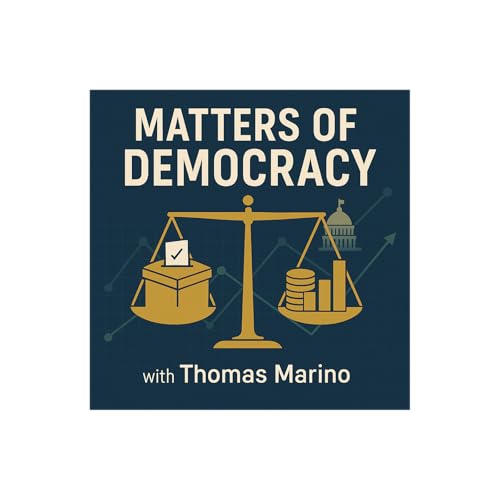
2025 9-23 Matters of Democracy dissemination of science; TikTok; UCLA; FTC; Burner phones.
No se pudo agregar al carrito
Add to Cart failed.
Error al Agregar a Lista de Deseos.
Error al eliminar de la lista de deseos.
Error al añadir a tu biblioteca
Error al seguir el podcast
Error al dejar de seguir el podcast
-
Narrado por:
-
De:
analysis on the current political landscape and parallel shifts in societal trust. The Trump administration is actively engaged in a campaign to control public narrative through the dissemination of scientifically unsupported claims, such as a link between acetaminophen and autism, and the suppression or delay of key government reports on topics including sex trafficking, domestic terrorism, and economic data. This effort is complemented by a strategic move to co-opt major social media platforms, evidenced by the orchestrated sale of TikTok's U.S. operations to a consortium of allies with the explicit goal of disseminating propaganda to its 170 million domestic users.
Despite these measures, the administration is encountering significant resistance and notable setbacks. It has suffered high-profile legal defeats, including the swift dismissal of a $15 billion lawsuit against The New York Times and judicial injunctions reversing the withholding of federal research funds from UCLA and a stop-work order against an offshore wind project. Media pressure campaigns have also proven ineffective, as seen in the quick reversal of Jimmy Kimmel's suspension by ABC following a backlash from Hollywood and a drop in Disney's market value. A singular win on the Supreme Court's shadow docket concerning the firing of an FTC commissioner stands as a notable exception.
Concurrently, a profound erosion of public trust in core institutions is underway. Confidence in higher education has collapsed across all demographic groups, with a record-low 35% of Americans now viewing a college degree as "very important." This disillusionment is fueled by a combination of ideological objections, high costs, perceived curriculum failings, and questions about the degree's economic value. This institutional decay is mirrored by a growing public cautiousness, exemplified by the emergence of practical counter-surveillance techniques, such as the use of "burner phones," as a legitimate consideration for personal security, signaling a shift in how individuals navigate the current political climate.



